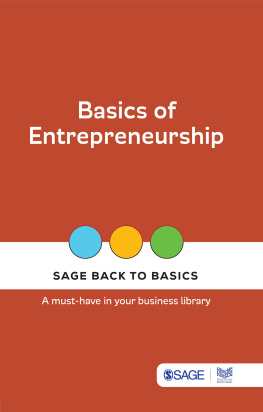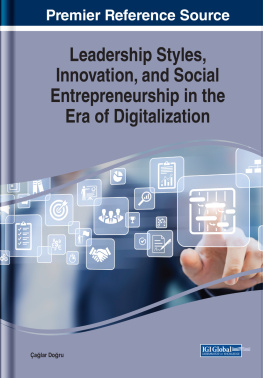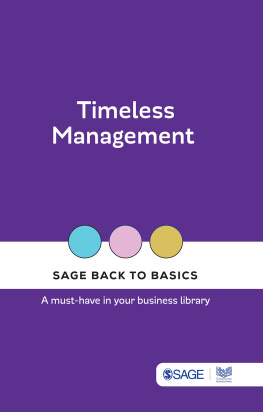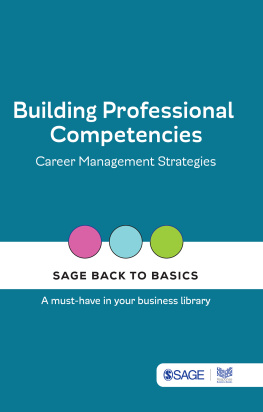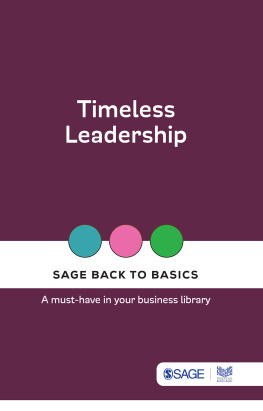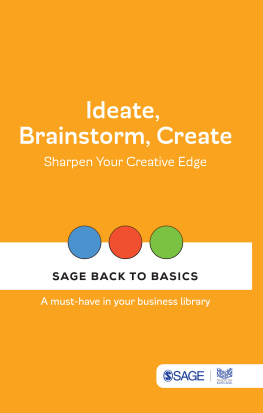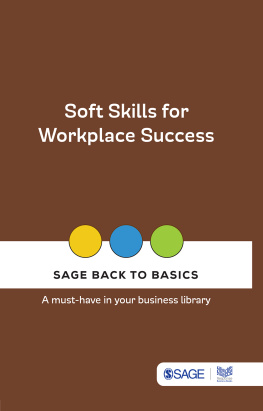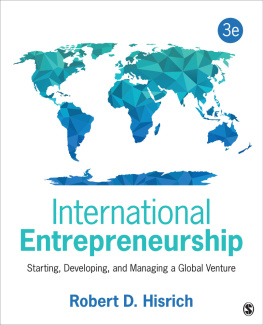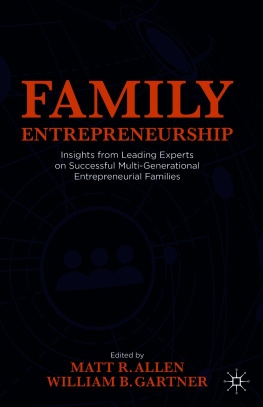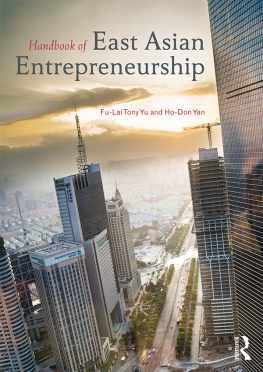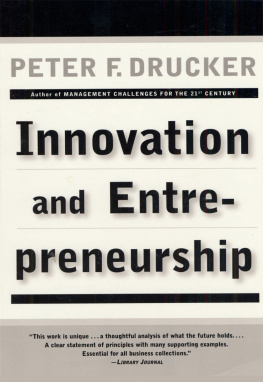Thank you for choosing a SAGE product!
If you have any comment, observation or feedback, I would like to personally hear from you.
Please write to me atcontactceo@sagepub.in
Vivek Mehra, Managing Director and CEO, SAGE India.
Bulk Sales
SAGE India offers special discounts
for purchase of books in bulk.
We also make available special imprints
and excerpts from our books on demand.
For orders and enquiries, write to us at
Marketing Department
SAGE Publications India Pvt Ltd
B1/I-1, Mohan Cooperative Industrial Area
Mathura Road, Post Bag 7
New Delhi 110044, India
E-mail us atmarketing@sagepub.in
Subscribe to our mailing list
Write tomarketing@sagepub.in
This book is also available as an e-book.
Basics of Entrepreneurship
A must-have in your business library
Copyright SAGE Publications India Pvt. Ltd, 2021
All rights reserved. No part of this book may be reproduced or utilized in any form or by any means, electronic or mechanical, including photocopying, recording or by any information storage or retrieval system, without permission in writing from the publisher.
First published in 2021 by
SAGE Publications India Pvt Ltd
B1/I-1 Mohan Cooperative Industrial Area
Mathura Road, New Delhi 110 044, India
www.sagepub.in
Published by Vivek Mehra for SAGE Publications India Pvt Ltd. Typeset in 11/14 pt Sabon by Fidus Design Pvt Ltd, Chandigarh.
Library of Congress Control Number: 2021941577
ISBN: 978-93-91138-30-1 (ePub)
ONLY WHEN YOU FALL CAN YOU GET UP
SIVADAS RAGHAVA
Success is going from failure to failure without loss of enthusiasm.
Sir Winston Churchill
Nine start-ups, four total failures, and two part failures, including the first four at a stretch (Astro Industries, Gilt Edge Financial Services, Zigma Marketing Services, SCORE Education, Scope Market Research, Indus Consultants, Scope Marketing and Information Solutions, e-chem.com, and Scope e-Knowledge Solutions), a couple of moderate successes and one fairly good onealong the way, the experience of raising funds from angel investors, venture funds, strategic investors, giving them reasonably good exits and exiting ourselves, that's the story I am writing about. It is not about the start-ups themselves, but the journey, the lessons learnt the hard way, the problems, the successes, and the ups and the lows. Hopefully, this will help budding entrepreneurs, both start-ups and scale-ups, to smoothen their roller-coaster ride, for entrepreneurship is like a roller-coaster ride. Highs are followed by lows with twists and turns thrown in. You need to hold on and stay the course, but that's what makes the whole experience exhilarating. I can say this with conviction. We (my partners and I) have had our fair share of all of these, but we held on, our guiding motto being that success comes from hard work, passion, and a great idea. If one works smart and hard over a length of time, it will surely pay offand pay off it did. We had to wait a fair bit though. It took us about 17 years to become an overnight success. But again I can state with all sincerity that we had a great journey proving the adage, There is much to be said for failure. It is much more interesting than success.
Let me illustrate this with some examples:
J.K. Rowling, the author of the Harry Potter novels, was waitressing and on public assistance when she was writing the first instalment of what would become one of the bestselling series in history. A dozen publishers rejected her book. The only reason it got published at all was that the eight-year-old daughter of Bloomsbury's CEO begged him to publish it.
Failure meant a stripping away of the inessential.
J.K. Rowling
It might come as a shock, but the man who became what many would call the best basketball player of all time didn't make it to his high school basketball team.
I have missed more than 9,000 shots in my career. I have lost almost 300 games. On 26 occasions, I have been entrusted to take the game winning shot, and I missed. I have failed over and over and over again in my life. And that is why I succeed.
Michael Jordan
Thomas Edison was both hearing-impaired and fidgety. He only lasted three months in school where his teachers said he was too stupid to learn anything. His mother eventually home-tutored him. In talking about his invention of the light bulb, he said:
I have not failed. I've just found 10,000 ways that do not work.
Thomas Edison
His early skills at music and violin were decidedly less than impressive. His teachers thought him hopeless. It was his father who saw the potential in him and took over his education. Beethoven slowly lost hearing for his entire life, and four of his greatest works were composed when he was completely deaf.
Beethoven can write music, thank God, because he can't do anything else!
Ludwig van Beethoven
The man was a manic-depressive. He could barely function half the time. He never saw success in his lifetime, but his work is often regarded as the greatest painting ever made by any human on the earth. Because of this, his name has become a war cry for artists around the world who have been repeatedly rejected and sidelined.
Even the knowledge of my own fallibility cannot keep me from making mistakes. Only when I fall do I get up again.
Vincent van Gogh
History is replete with examples of successful entrepreneurs who have failed in their follow-up attempts, but there are many who have done well.
The label of serial entrepreneur is a point of pride in the start-up world, an indication that this is not one's first attempt. In a survey on factors that contributed to their success, entrepreneurs ranked their past successes and failures above everything but their prior work experience. Yet new research from the Centre for European Economic Research casts doubt on this belief. In its recent paper, researchers used survey data to examine the success or failure of 8,400 entrepreneurial ventures in Germany, and whether their founders previous experience predicted the outcome. The researchers concluded that there was no surety that previously successful entrepreneurs would succeed in their next ventures and that failed ones were more likely to fail than novice industrialists. These results held even after accounting for their education and industry experience. In other words, the value of past entrepreneurial success may be less about ensuring that an entrepreneur has gained the required learning and more a way for investors to guess at their capabilities.

